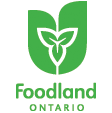I went shopping for a Christmas turkey today. The best deal I could find was $1.99 a pound in a Sobey's store that advertised utlility-grade birds for 99 cents a pound, but had nary one of them on display.
I should have picked up a turkey for 74 cents a pound when we were in a supermarket in the United States.
But my grousing is nothing compared with the way Ontarions are short-changed by supply management for the turkey and chicken industries.
Our processing sector is consolidating, resulting in the loss of hundreds of jobs as plants are closed.
Meanwhile, just across the U.S. border, processors are building new plants and hiring more staff. And, one can assume, farmers are selling more birds.
There is no natural advantage over Ontario for the poultry industries in Ohio and Indianna. They are tilling similar land in a similar climate. They are buying the same genetic chickens and turkeys as Ontario farmers.
Their feed mills are no more competitive than ours; we have, in fact, one of the most competitive feed sectors in all of Canada within the confines of the Waterloo Region.
We have a slight competitive currency advantage at the current value of the Canadian dollar.
The big difference - and it is overwhelming - is supply management, its central control that stifles innovations, its higher prices and costs of doing business and the brakes that puts on consumer purchasing.
In Ohio, Park Farms has told 250 workers at its Park Poultry
chicken-processing plant in North-east Ohio that they will be laid off Feb. 17, but they can apply to get their jobs back with the new owner, whose identity has not been revealed.
In next-door Indianna, family-owned Farbest Foods Inc. has
announced plans to build a $69-million, 220,000-square-foot turkey processing
plant on a 100-acre site near Vincennes.
The company contracts with about 170 farmers to raise about
10 million birds per year.
It’s current plant is double-shifted and at capacity.
The new plant will start with 350 employees and when it
double-shifts, it expects to have 600 workers there.
Here in Ontario, the turkey industry has been stagnant for at least 10 years, hardly growing any more birds despite a major population increase.
Ontario's natural competitive advantages over other provinces remains stifled because of the dysfunctional politics of supply management.
Nor dare politicians raise so much as a whisper of criticism. The supply-management sector spends millions, and is extremely aggressive, in ensuring politicians remain 110 per cent committed to every jot and tittle of supply management.
Central command and control of economies never works over the long term, and it's not working for Canada's dairy and poultry sectors. All that remains is to see when and how it collapses.
















